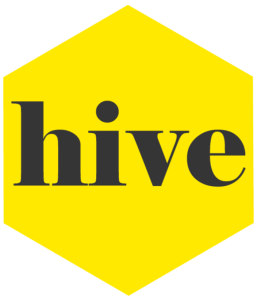Kosovo’s citizens will head to the polls on February 9 to elect 120 representatives for the Kosovo Assembly. The election campaign officially begins on January 11, and will continue until polling stations open on February 9 at 7 a.m..
According to the Central Election Commission (CEC), 2,075,868 citizens are eligible to vote in the upcoming elections. Among them, 1,970,944 reside in Kosovo, while 104,924 registered voters live abroad. For these voters, postal voting began on January 9.
A total of 28 political entities, comprising 1,280 candidates, will participate in the elections. These entities include 19 political parties, five coalitions, two civic initiatives and one independent candidate.
Citizens will cast their votes for one political entity and up to 10 candidates from a given list. In previous elections, voters were limited to selecting a maximum of five candidates.
How did they perform in the 2021 elections?
In the general elections held on February 14, 2021, Vetëvendosje (VV) achieved a decisive victory, securing 50.2% of the vote. The Democratic Party of Kosovo (PDK) followed in second place with 17%, while the Democratic League of Kosovo (LDK) ranked third with 12.7%. The Alliance for the Future of Kosovo (AAK) received 7.12% of the vote. The Social Democratic Initiative (NISMA) did not surpass the 5% threshold required for representation in the Kosovo Assembly.
The 2021 election results represented the weakest performances for PDK and LDK since Kosovo declared independence in 2008. Both parties entered this election cycle with restructured leadership and significant changes.
After the Kosovo Specialist Chambers filed indictments against two prominent PDK leaders, Hashim Thaçi and Kadri Veseli, the party held internal elections and elected Memli Krasniqi as its new leader. Additionally, just a few months before the elections, PDK broke a long-standing tradition of political parties in Kosovo by nominating Bedri Hamza as its candidate for prime minister — a position typically reserved for the party leader.
LDK undertook internal reforms by electing Lumir Abdixhiku as chairman and introduced new figures from various public sectors to enhance its membership and strengthen the party.
Meanwhile, VV is seeking a second term under the leadership of the current prime minister, Albin Kurti.
AAK and NISMA are participating in these elections as a coalition, joined by the E-30 and Conservative parties. Ramush Haradinaj serves as the coalition’s list holder and candidate for prime minister.
These elections mark the first regular electoral process following the completion of a full mandate by the Kurti-led government.
 K2.0 covers the 2025 elections
K2.0 covers the 2025 elections
K2.0 will provide comprehensive coverage of the 2025 elections through a series of diverse and interactive media content aimed at promoting informed voting. Continuing its tradition of election coverage, K2.0 will once again deliver curated and specialized election coverage.
K2.0 will address the most important issues by closely aligning with specific demographics and producing content tailored to different ages, as well as topics often overlooked amid the intense election media coverage.
K2.0 will also hold political parties accountable by scrutinizing their promises and actions. K2.0 will analyze not only their current declarations and pledges but also their achievements — or failures — during their time in government. This approach will enable K2.0 to deliver a clearer, more nuanced and objective perspective to help you make an informed decision.
Short video series: ‘Get ready for elections with K2.0’
This series is designed for young voters in Kosovo, providing them with essential information about the electoral process, the importance of voting and how to make informed choices. K2.0 recognizes the need to create election-related content specifically for young people, given the current lack of clear and reliable information in the media — often their primary source — and the decreasing interest among youth in elections and politics more broadly.
The series will primarily be distributed on social media platforms, including TikTok and Instagram.
Deconstructing promises: ‘What would it take?’
This analytical series examines the key promises made by political parties, breaking them down based on their potential for implementation, financial sustainability and practical implications. Whether in their programs or during television debates, parties often make ambitious promises that may sound appealing but prove less feasible in practice. Through this series, K2.0 will analyze these promises, evaluating their practicality and sustainability in real-world scenarios.
These contents will be distributed mainly on TikTok and Instagram.
Analysis of election programs
During the election campaign, public attention often centers on a limited set of topics, overshadowing other issues that are equally important for society and the future of the country. K2.0 will curate a series of articles that reveal and analyze the election programs of political parties, comparing how the largest parties address key topics relevant to our society.
- Gender Justice
- Energy Crisis
- Economy
- Culture
- People with Disabilities
- Workers’ Rights
- Social Protection
- Youth Representation
- Elderly Issues
- Air Pollution
- Mental Health
Interactive series: ‘I want to ask/I want to know’
Through this series of curated questions on K2.0’s social media platforms, readers will be directly engaged, sharing their thoughts on the issues influencing their vote in this election. The most compelling responses and comments will be featured on the K2.0 platform, fostering a meaningful and productive public dialogue.
Most of the content on K2.0’s social media channels is published in Albanian. For English and Serbian, please visit our website.
Did we miss something?
As a voter, you may have concerns that issues are not being adequately addressed by the political parties’ election platforms — issues you believe K2.0 can analyze and highlight. If so, please write to us at [email protected] or contact one of our editors, whose email addresses can be found here. Let us know if there is a specific and important topic you think is being overlooked during this period, and K2.0 will make every effort to address it.
Feature image: Dina Hajrullahu / K2.0.
 Want to support our journalism? Become a member of HIVE or consider making a donation. Learn more here.
Want to support our journalism? Become a member of HIVE or consider making a donation. Learn more here.


Lumir need to won